Family determined child has permanent mental illness
Sharing with Dan Tri reporter on the afternoon of November 23, Ms. Kieu Thi Mai, mother of student VVTK, said that her son has not yet regained normal awareness.
When Dan Tri reporters visited her house last week, K. called guests "boys" and "thugs." Ms. Mai said that he called everyone "thugs," did not know his own name, and did not know who his parents were.
Father and sister often have to keep an eye on K. because she constantly screams and wants to leave the house.
"There are rare times when my child recognizes his parents, but only for a few seconds or a minute, then he loses his mind again. I have determined that my child is permanently mentally ill and cannot be cured," Ms. Mai shared.
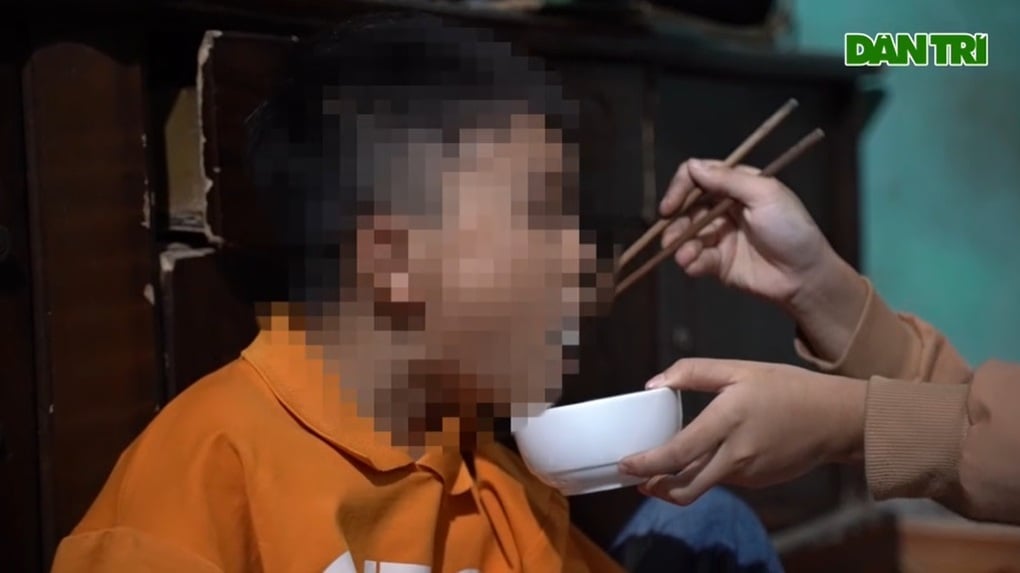
VVTK is no longer able to live independently and must be fed every day (Photo cut from clip).
Previously, doctors at the National Children's Hospital and Bach Mai Hospital diagnosed K. with psychological trauma and dissociative disorder (a type of mental disorder).
Ms. Mai still takes her child for follow-up check-ups according to the doctor's appointment, and also takes her child for psychological therapy 2 sessions/week with the specialist that the People's Committee of Thach That district invited to treat K.. This treatment course lasts 12-16 sessions.
Ms. Mai is worried that after the 16 sessions mentioned above, she will have to pay a huge amount of money to treat her child.
"The family of the children who beat my child recently came to my house and demanded that I show them all the medical records, claiming that they would only pay the exact amount stated on the medical records. I have no idea, and don't know what to do.
But my child is only 12 or 13 years old, from a quick, active child, he is now disabled. Who will give me back my normal child? Those who made him like this should not be held responsible for anything," Ms. Mai cried.
As Dan Tri reported earlier, a clip circulating on social media recorded a scene of a student being beaten by a group of other students. This group of 5-6 people forced the male student into a corner, continuously punching and kicking him violently in the face, head, and stomach.
This school violence incident was determined to have occurred at Dai Dong Secondary School, Thach That District, Hanoi. The group of students were all in 7th grade. The victim was VVTK.
Out of fear, K. did not inform her teachers or family. It was not until September 16 that the school and family learned of the incident. According to the family and school's investigation, K. was beaten repeatedly, and the exact date of the violent clip was not determined.
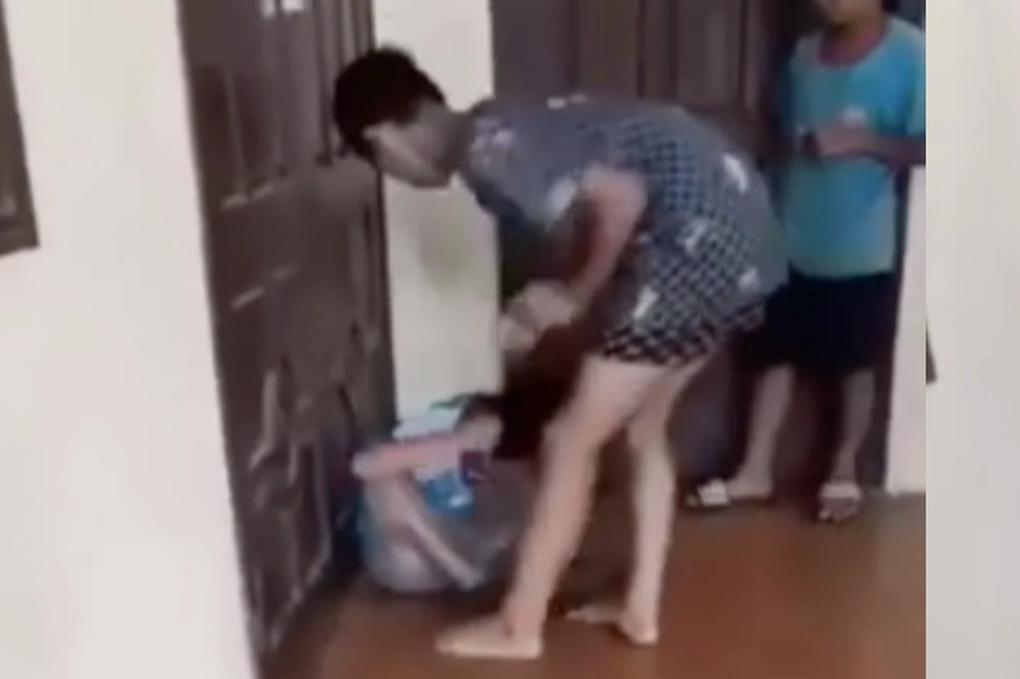
Image of VVTK being beaten by a group of friends (Photo cut from clip).
On September 20, the principal convened the school's disciplinary council, and the students who beat their friend and their families admitted their mistakes.
On September 21, K. showed signs of psychological trauma. The family took him to Phuc Tho General Hospital for examination and the hospital allowed him to return home for treatment.
On September 25, K. returned to school. During the day, he continued to be threatened by a friend in the violent group, so that night he showed signs of fear. His family took him to the National Children's Hospital for examination. The results diagnosed K. with dissociative disorder (a type of mental disorder).
Right after the VVTK incident at Dai Dong Secondary School, another serious school violence incident occurred at Tan Minh Secondary School, Thuong Tin, Hanoi.
The victim was H. - a 6th grader - who was beaten by his classmates right in the hallway. In addition to the 4 students who directly participated in the beating, a group of more than 10 other students, both male and female, all in 6th grade, gathered around to film the clip, while commenting, laughing, and mocking the beaten student with vulgar words.
H. said this was not the first time he had been beaten. He had been beaten twice before by his classmate U., once causing his nose to bleed right in the classroom. U. also threatened to beat anyone who dared to play with H.
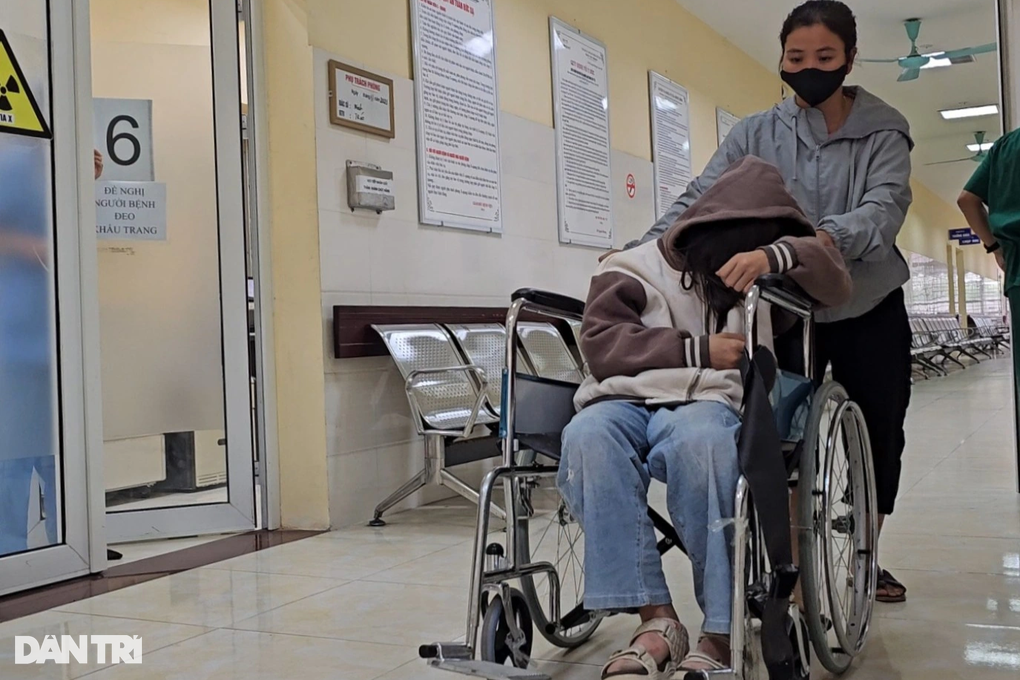
H., a 6th grade student at Tan Minh Secondary School, was taken by his family to the Central Psychiatric Hospital I for examination after the abuse (Photo: Minh Quang).
H.'s family reported to the school the times their child was beaten and threatened with being beaten. The school has disciplined student U. However, after the disciplinary action, student U. invited his friends to beat H. more brutally.
Currently, H. is still mentally disturbed and does not want to go to school.
Schools and authorities handle school violence in a formal and administrative manner?
Dr. Pham Thi Thuy - a sociologist and psychologist - commented: "School violence cases are being handled in a too formal and administrative manner, without really addressing the root cause of the incident. This is the reason why school violence recurs, with each case being more serious than the last."
"We need to thoroughly understand why children are violent towards each other, and we must listen to both sides. Only when we listen, talk, and understand can we find a way to resolve the situation and take drastic measures. It's not enough to ban children from going to school for 3 days or 1 week. I oppose this.
Children not going to school not only does not solve the root cause but also makes them feel more resentful and hurt, and can lead to a more serious level such as new cases of violence," Dr. Pham Thi Thuy analyzed.

Sociologist Dr. Pham Thi Thuy (Photo: NVCC).
Dr. Pham Thi Thuy believes that in order to listen, dialogue, and understand both sides, including victims and perpetrators of school violence, the presence of a school psychologist is essential. Teachers who are not trained in psychological counseling skills and knowledge will not be able to handle it.
In addition, schools need in-depth training for students with violence problems on respect and conflict management, providing them with skills and ways to control their adolescent emotions and resolve conflicts.
Psychological support services for students who have been beaten and students who beat their friends are also very necessary. Students must clearly understand what went wrong in their behavior and what responsibility they take for that wrong behavior. Only then will students not make the same mistake again.
Dr. Pham Thi Thuy also emphasized that school violence is increasingly occurring at younger ages, is more aggressive, involves more girls, and has more serious consequences due to many causes from adults, families, schools, and society.
In addition to the cause of puberty getting earlier and earlier, Ms. Thuy pointed out two other important causes.
One is that violent videos on social networks are increasing, while children are given early access to social networks by their parents.
Second, domestic violence between parents and between parents and children has not decreased. Parents are busier and have more life pressures, leading to more negative emotions and negative behaviors being directed at their children.
Children who are emotionally repressed in their families will find ways to react and vent their anger on those around them, especially their peers. Therefore, a small conflict can also cause a major school violence incident.
To fundamentally solve the problem of school violence, Dr. Pham Thi Thuy affirmed that adults need to change first.
"How do we, adults, parents, and teachers, work together to build a happy school, a learning environment filled with love, respect, and safety?
In which, all children's emotions are listened to, children are encouraged to behave positively, are educated in social awareness, mutual respect, and know how to resolve conflicts in life," Dr. Pham Thi Thuy stated her opinion.
Source





![[Photo] "Lovely" moments on the 30/4 holiday](https://vphoto.vietnam.vn/thumb/1200x675/vietnam/resource/IMAGE/2025/5/1/26d5d698f36b498287397db9e2f9d16c)
![[Photo] Binh Thuan organizes many special festivals on the occasion of April 30 and May 1](https://vphoto.vietnam.vn/thumb/1200x675/vietnam/resource/IMAGE/2025/5/1/5180af1d979642468ef6a3a9755d8d51)


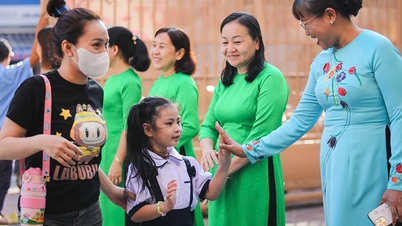
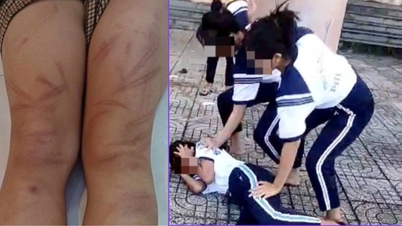
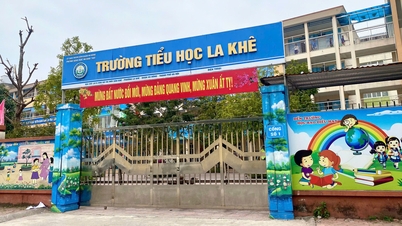





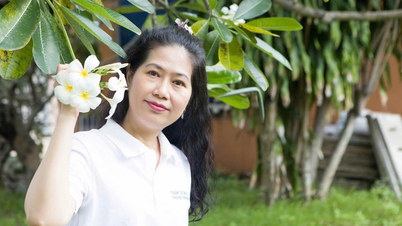


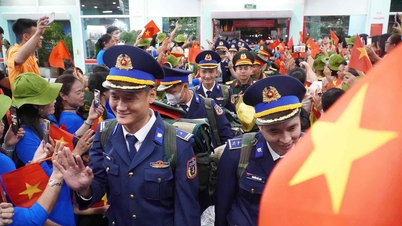













![[Photo] Ha Giang: Many key projects under construction during the holiday season](https://vphoto.vietnam.vn/thumb/1200x675/vietnam/resource/IMAGE/2025/5/1/8b8d87a9bd9b4d279bf5c1f71c030dec)










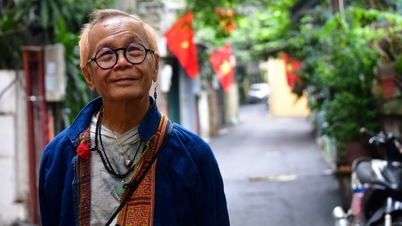


































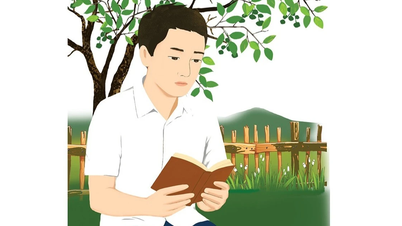

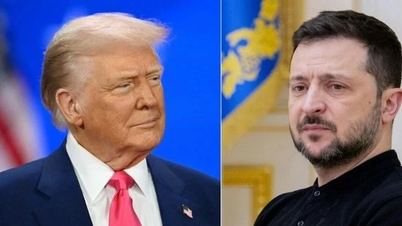


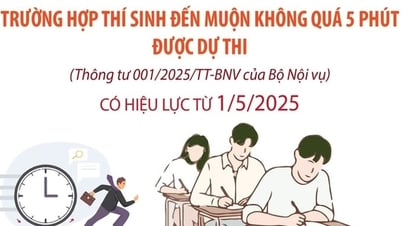
















Comment (0)